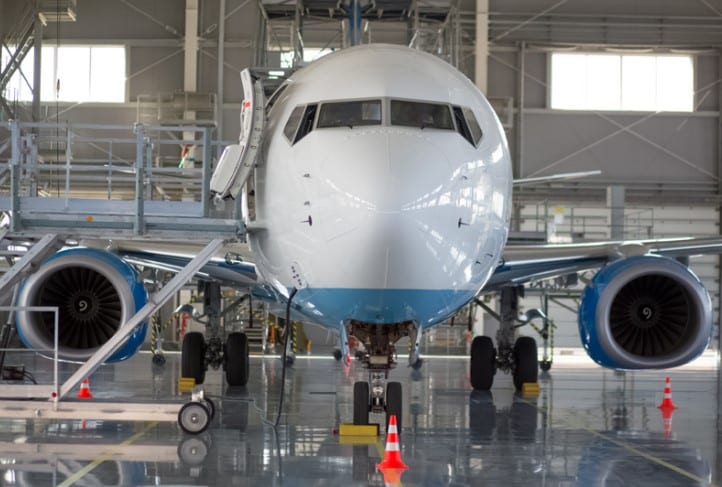A key element of aviation operations, aircraft weight scales or aircraft weighing systems are essential for maintaining efficiency, safety, and regulatory compliance. These scales are vital in many areas of flight operations, from figuring out aircraft weight and balance to helping precise loading and fueling procedures.
1. Weight and Balance Calculations
Airplane weigh scales are vital tools used to ascertain the total weight of an aircraft, encompassing fuel, passengers, and cargo. In order to determine the aircraft’s center of gravity and guarantee appropriate weight distribution for flight stability and control, this information is essential. Maintaining exact weight and balance is essential for safe takeoffs, landings, and maneuvers during flight operations. The accuracy of these computations directly impacts the efficiency and safety of flight.
Airlines can improve operational effectiveness and guarantee regulatory compliance by employing aircraft weight scales. By making careful weight calculations easier, these scales help airlines maximize payload capacity and fuel efficiency without sacrificing passenger safety. Ultimately, aviation weight and balance computations are essential procedures that highlight how important aircraft weight scales are to flight operations.
2. Safety Considerations
Ensuring flight safety requires precise weight and balance data, which can only be achieved using airplane weight scales. An overloaded or unbalanced plane may experience handling problems, structural stress, or, in severe situations, even lose control. Pilots can reduce risks and improve overall safety during flight operations by following weight constraints and balancing criteria.
Following safety procedures guarantees the observance of aviation laws and industry standards in addition to protecting passengers and crew. These safety precautions are largely made possible by aircraft weight scales, which offer the information required for well-informed decision-making and risk management during flight operations.
3. Fuel Efficiency
Fuel efficiency is increased by properly measuring and managing aircraft weight using aviation weight scales. It is essential to load overweight trucks properly in order to save fuel consumption and operating expenses. Operators may maximize fuel economy, lowering operating costs and their impact on the environment by precisely monitoring weight and making adjustments as necessary. In this process, aircraft scales are essential because they provide operators with the information they need to optimize fuel efficiency while upholding safety and regulatory compliance. In addition to providing financial rewards, this emphasis on fuel economy helps airlines operate more sustainably.
Additionally, maximizing fuel efficiency lowers carbon emissions, supporting international initiatives to lessen aviation’s environmental impact and combat climate change. By investing in technologies and practices that improve fuel efficiency, airlines can achieve cost savings while demonstrating their commitment to environmental responsibility.
4. Regulatory Compliance
In order to comply with aviation regulations and industry standards, aircraft weigh scales are necessary. Regulatory agencies like the Federal Aviation Administration and the International Civil Aviation Organization impose strict guidelines on airplane weight and balance limitations. Operators can prove compliance and uphold the highest standards of safety and operational integrity by using certified aircraft weight scales and following the rules.
These rules are intended to protect flight safety, guard against overloading, and guarantee appropriate weight distribution, which lowers the possibility of mishaps and improves general aviation safety. Adherence to regulatory guidelines moreover cultivates reliance and assurance among travelers, oversight organizations, and aviation industry participants, hence fortifying the dependability and legitimacy of aviation activities.
5. Maintenance and Certification
Airplane weighing systems require routine maintenance and calibration to guarantee accuracy and dependability. Scales need to undergo routine calibration checks and inspections to ensure that they are accurate and functioning properly. Certified agencies must also certify aircraft weight scales to confirm their accuracy and guarantee their fitness for use in aviation applications.
These certifications and maintenance processes depend heavily on upholding aviation safety requirements and preserving the integrity of weight measurement systems. Operators can maintain operational efficiency, reduce risks, and guarantee weight measurements are accurate in aircraft operations by following strict maintenance processes and acquiring required certifications.
Conclusion
Weighing systems on aircraft are essential aviation instruments that provide vital information for safe, effective, and compliant flight operations. These technologies are essential to every facet of aviation, from guaranteeing precise weight and balance computations to maximizing fuel efficiency and upholding legal compliance. Aircraft weighing systems, as the cornerstones of safety, efficiency, and regulatory compliance in the aviation sector, are, in essence, essential parts of the aviation infrastructure.




